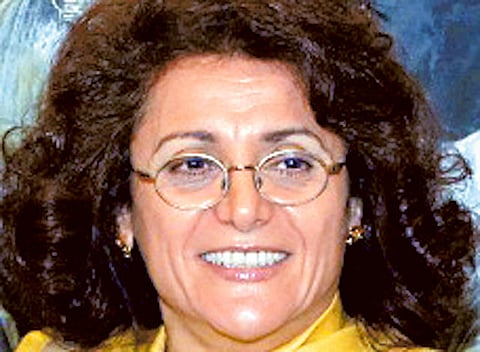Western accents valued more: poll
Majority of poll respondents think they are valued at workplace and social settings

Dubai: Almost 70 per cent of UAE residents who took part in a Gulf News poll believe that people who speak with a western accent are valued more in the UAE than those who don’t.
Of the 1,882 people who responded to a poll asking if society in the UAE views people who have western (British or American accents) as more educated or at an advantage, 69 per cent said yes.
Lebanese expatriate Ayah Mohammad, 23, who was one of the respondents to answer yes, said she knows people who fake or westernise their accent when speaking English.
This is especially true in the workplace, she said, as many people are self-conscious about their Arab or Asian accent when speaking English, believing that having a western accent shows that the person was educated abroad or at a good private school and so is better qualified.
“Even among friends if you are an Arab or Asian with an American or British accent, you are perceived to be cooler than someone who does not have one, almost like you are classier. For this reason you see many youth mixing Arabic and English while speaking.”
Dr Rima Sabban, Assistant Professor of Sociology at Zayed University, said people might have this perception about accents because the UAE, like most countries, has a hierarchy of ethnicity.
“Accents are a reflection of hierarchy. In every society there is a hierarchy of ethnicity and, along with that, there is a hierarchy of treatment. So accents are very much a representation of social class, ethnicity and social status.”
Sabban said people believe the more you speak English with a thick accent the more it shows that you did not acquire it properly, which reflects that person’s education, upbringing, social class, etc. She said this accent hierarchy exists in the Arabic language as well.
Palestinian Mohannad Yousuf, 25, admitted to westernising his accent while at work.
“The majority of the people I work with in my company are British, so I sometimes feel self-conscious when speaking English so I tend to westernise my accent to make it sound less Arab.”
Gulf News conducted another poll asking people if they have ever westernised their accents, and 30 per cent of the 945 participants said yes while 70 per cent said they never did.
Clinical Psychologist and Managing Director of The Light House Arabia Dr Saliha Afridi said there are psychosocial reasons why someone would want to change or fake their accents.
“The person most likely has an inferiority complex, in most cases we all have an inherited colonial inferiority complex — a feeling that a person has that they are inferior to others around them so they overcompensate by engaging in opposite or redeeming behaviours which, in this case, is changing their accent.”
Dr Saliha said as much as we don’t want to admit it, another factor can be that we as a culture value Western accents (among other things).
“We equate them with someone who is intellectually superior, sophisticated, wealthy, and worthy of a higher status [and higher pay]. This would be enough motivation for someone to change their accent.”
Dr Saliha said the way someone perceives an accent affects its holder’s self-confidence.
“Do they hold negative beliefs about their accent or their country of origin? Do they value western accents more than their own? Do they believe that their accent is holding them back from succeeding in life? If they answer yes to these questions, then the chances are that they will have low self-confidence and low self-worth.”
On the other hand, Ali Khan, Pakistani, 26, said he is proud of his accent and believes that people should be judged by their character, not accent.
“I am confident of the knowledge I acquired from my education so I don’t feel the need to change my accent at work. I don’t think people should change who they are, they will sound fake anyway.”
Dr Saeed M. Faiq, Professor of Intercultural Studies and Translation at the American University of Sharjah, said accents can be learned but this can be easily picked up by native speakers.
“Because of globalisation and the economic influence of the UK or the US, a British or American accent may well be used as an icon of some sort of “superiority” or “coolness”. Through exposure to the many media tools and outlets, individuals may manage to fake accents, although native speakers can easily spot this.”
Sign up for the Daily Briefing
Get the latest news and updates straight to your inbox



